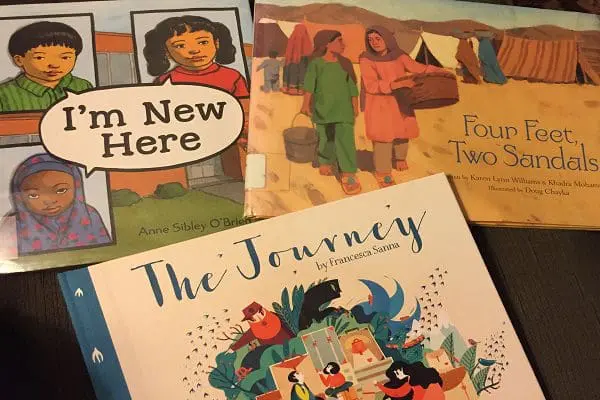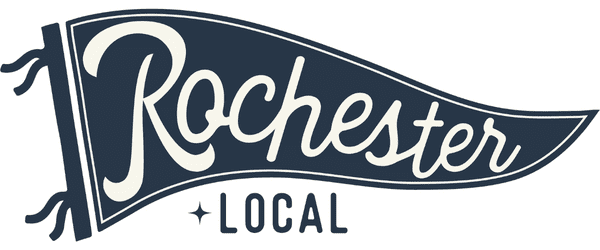
My 8-year-old daughter has reached a golden point in growing up: she is now aware of the world outside her immediate circle of family and friends. As we drove to school one morning in late January, she heard the word refugee many times during the news updates on the radio. This, of course, prompted her to ask me the meaning of the word refugee. I told her the definition of the word, which satisfied her for the car ride, but I knew we would need to revisit the subject later.
As parents, when we ourselves have not experienced something, it is natural to struggle with how to teach our children about it. I have never been in the position of a refugee, so I do not have any personal stories to share. This meant I needed to find information and stories that might truly help her understand what it means to be a refugee. I knew it would be especially compelling to her to read stories about refugee children because she could better imagine herself in their position. Finding quality information for our youngest school-age kiddos takes some guidance, so here are a few recommendations for when your own child has questions about a word or topic they hear about in the news.
Back to basics: the dictionary
As a library teacher, when kids in primary and intermediate grades have a question about word meaning, we start together with a children’s dictionary. If you don’t have a children’s dictionary at home, you can access any of the elementary school-appropriate online resources at the Electronic Library for Minnesota (ELM). Once there, Britannica School: Elementary has dictionary entries from Merriam-Webster’s children’s dictionary, as well as encyclopedia articles on topics. Best of all, the resources on ELM are free to all Minnesota residents with a Minnesota public library card.
Sharing stories
While a definition can help your child understand what a word means, they might still struggle with its meaning in the context of our world. Educators use children’s literature to encourage kid-appropriate discussion of real-world issues. As humans, we read stories to help us understand that which we do not experience ourselves. To find these stories, we are fortunate here in Rochester to have access to two amazing library systems: Rochester Public Library (RPL) and Southeastern Libraries Cooperating (SELCO). No matter what topic your child queries you about, you should be able to find some stories that will guide their understanding.
To help answer my daughter’s question, I searched RPL’s catalog for the term “refugee.” RPL has 113 resources written for children about refugees. I read through many of them, and listed below are a few picture books that rose to the top–perfect for sharing with your school-age children if they, like my daughter, want to learn more about what life might be like for a refugee child.
Stories about refugees leaving home
How Many Days to America by E. Bunting. A family flees their home by boat after soldiers take over their village. They face many hardships on their journey, but they do reach their destination. Note: While no violence is shown in the book, in one scene the parents hide the children to keep them safe from the invading soldiers.
The Journey by F. Sanna. After war comes to their area, claiming the life of their father, a mother and her two children flee. Told from a child’s perspective, the modern illustrations combine childlike whimsy with the darkness of the family’s situation. Picture clues indicate how well the mother spins the situation to spare the children unnecessary worry, but that she herself is very afraid.
Stories about arriving somewhere new
Four Feet, Two Sandals by K. Williams and K. Mohammed. When an aid truck delivers clothing and shoes to their refugee camp, two girls each end up with one sandal from the same pair. They decide that they will share the sandals, taking turns wearing them every other day. The girls’ daily activities in the refugee camp will certainly interest early elementary readers. They develop a lovely friendship that only ends when one family leaves the camp to settle in America.
I’m New Here by A. O’Brien. We meet three refugee children in this book, as they first begin to attend school in America. While these children may not know how to read, write, or speak English yet, we see they were capable in their native language and culture. An excellent resource for any school, but especially fitting for elementary school classrooms welcoming a refugee child.

This post was first published in March 2017





